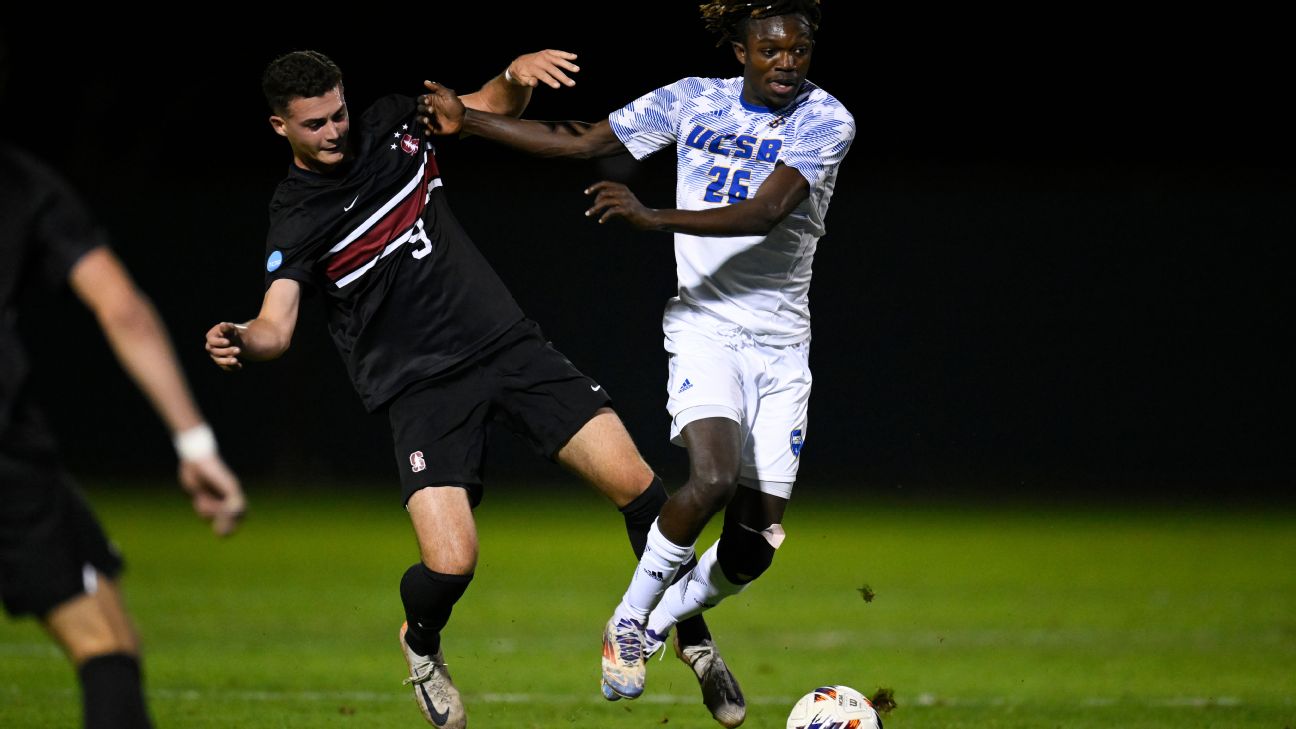U.S. Soccer announced on Tuesday a committee that will evaluate and potentially overhaul the college soccer system.
The committee includes 18 members spanning stakeholders across the industry, from professional leagues and college soccer to the men’s and women’s games. They will recommend potential changes to college soccer – long viewed as an important but flawed development pipeline for the U.S. professional leagues – that could be implemented as early as next year.
“College soccer is integral to the fabric and future of our sport in this country,” U.S. Soccer CEO JT Batson said in a statement. “The individuals joining this group bring unique perspectives and expertise that will help us build a model where college soccer can thrive in a modern, connected system — all working collaboratively in service to soccer.”
News of the committee’s formation comes at a transformative and uncertain time for college sports at large.
Last week, a federal judge approved the terms of a $2.8 billion settlement that paved the way for colleges to pay student-athletes, a ruling that experts say will change college sports forever.
U.S. Soccer’s committee, called the “NextGen College Soccer Committee,” will be chaired by Dan Helfrich, principal at Deloitte Consulting and part of U.S. Soccer’s leadership advisory group.
Others involved from the professional game include Seattle Sounders and Seattle Reign co-owner Adrian Hanauer, Kansas City Current co-owner Angie Long, and executives from MLS, the NWSL and USL.
Representatives of top college programs are on the committee, as is Richard Motzkin, an executive at the player talent agency Wasserman.
The group is tasked with making recommendations for college soccer “to thrive in the rapidly evolving soccer ecosystem,” prior to the start of the academic year in the coming months and working with conferences and college programs “interested in these innovative solutions and opportunities.”
Changes to the college soccer system could be implemented beginning in the 2026-27 academic year. Critics of college soccer include prominent coaches and administrators within the game. They argue that the college game has not kept pace with modern soccer and fails to prepare players to be professionals.
The college game utilizes slightly different rules like clock stoppages and unlimited substitutions. But critics’ biggest point of contention is the short fall season that crams a couple dozen games into a few months.
A proposal to shift soccer from a fall sport to one that spans the full academic year — fall to spring with a winter break — dates back 25 years and picked up renewed momentum in 2022.
University of Maryland men’s soccer coach Sasho Cirovski led a group of Division 1 soccer coaches and executives interested in implementing what they called the “21st Century Model.”
The college game remains a particularly important pipeline in the women’s game. U.S. Soccer said in Tuesday’s news release that “the group’s work will consider both the men’s and women’s college games, recognizing that the models and solutions may differ between the two.”
U.S. Soccer formal involvement with college soccer is new.
The NextGen College Soccer Committee will also evaluate commercial opportunities for college soccer, which is of increasing importance in the NIL (name, image, likeness) era of college sports where athletes can be paid.
The federation said it would engage the NCAA and the USOPC for feedback. U.S. Soccer said it will begin outreach to college programs and conferences to gauge interest “in participating in the new opportunities or model(s).”
There are more than 50,000 college soccer players combined in men’s and women’s soccer across all three divisions.
There is an increasing number of female players bypassing college to turn professional as teenagers, but that pathway remains the exception rather than the rule.
U.S. Soccer’s announcement of a committee to evaluate college soccer comes as professional league attempt to figure out their own solutions.
MLS has MLS Next Pro for reserve teams, and USL has a formal academy system with its teams.
The NWSL recently announced vague plans to launch a second division for reserve teams as early as next year. U.S. Soccer said it would work its pre-professional youth members to consider their roles in potential solutions.




